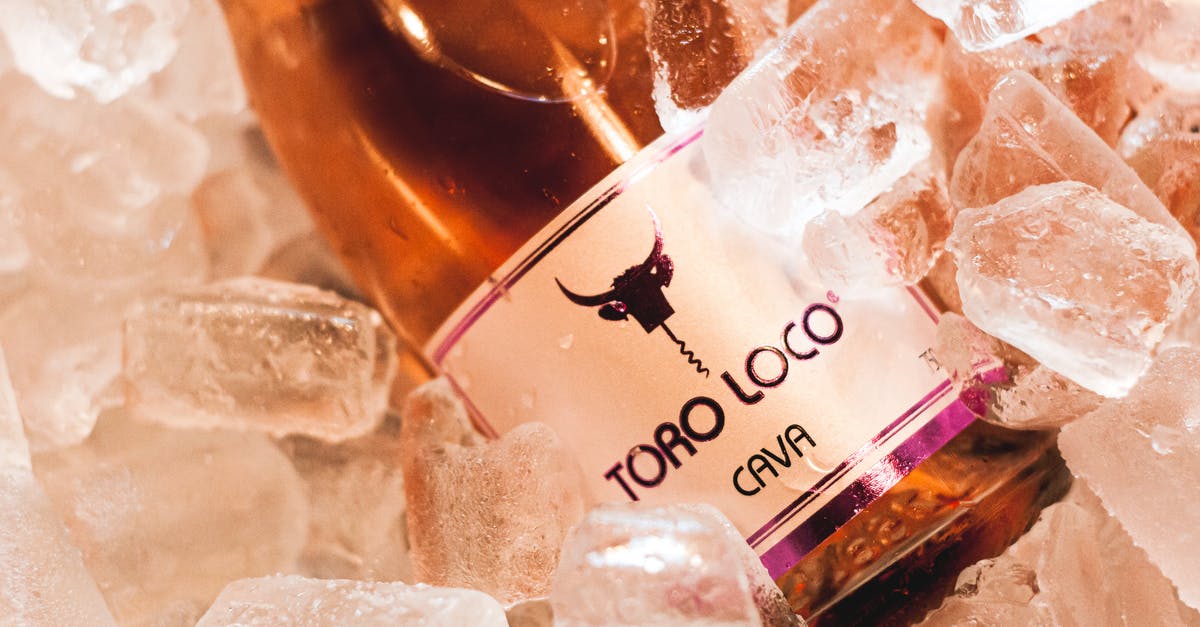What are some good substitions for alcohol in cooking?

One of my favorite recipes these days is making a good bananas foster dessert. Everyone I know enjoys it, to some extent, so it's a go-to dessert, for me.
One of my concerns, however, is that since the recipe calls for rum and banana liqueur, I can't (or at least I choose not to) serve it to anyone too young. I'm not so concerned with the legal age limit as with serving it to very young children, like a nephew under 10 years old. The idea is to burn off the alcohol, but I assume there is still some that remains in the dish after it is served.
So what I'm wondering is, what are some good alternatives to alcohol in common dishes? I obviously won't get the same "flambe" presentation from the bananas foster, but it seems like a small tradeoff when considering I'll be able to serve it to more people. (I wouldn't make the dessert for my sister, if her son couldn't eat it too)
EDIT: Not to take away from any answers, but I did find a website detailing some common alcohol substitutions
Best Answer
I can't give you a list with good substitutes for common dishes. First, I doubt that my common dishes are your common dishes. Second, it would be too long. If you want to substitute alcohol in a dish, you have to understand what it does in the specific recipe, and then use your imagination to think of an ingredient which will have a similar effect.
Alcohol has mostly three effects in a dish. First, it is a liquid, and its bulk must be considered. In recipes where the ratio is important (mainly batters), if you leave out the alcohol, you have to add some other liquid to maintain the original ratio.
Second, alcohol adds its own taste. A small part of it is the taste of the ethanol itself, but cooks mostly use beverages with a strong taste of their own as a component of the dish.
Third, alcohol is a solvent. It can get more taste out of your other ingredients than pure water. (Ever wondered why vanilla extract is alcohol based?) This is especially important in recipes which give it a longer time to interact with the other ingredients, such as the slow boiling of a coq au vin.
Depending on which of these effects are important to you, you have different options to act.
Just leave it out. If you aren't baking, you probably aren't that interested in the ratio. And if you expect the result to taste well enough without the alcohol, the simplest solution is to skip it.
Use a liquid substitute. This is especially important in baking and confectionery, but you can decide to do it in any case. Depending on the original kind of alcohol and taste you are aiming for, you can use pure water, a liquid trying to stay close to the original taste, or a liquid which gives a completely new taste profile to the whole recipe. For example, in a sweet dish like your foster dessert you can use caramel dissolved in apple juice instead of dark rum if you want to mimic the original, or cherry juice to create a cherry-banana dessert. Common liquids to use are sugared water (when the original recipe had a sweet liquor), a fruit or vegetable juice, a herbal infusion, clear stock, or pickle liquid. Don't be afraid to use more than one liquid to get closer to the effect you want. If the recipe already uses some other liquid, you can just use more of it.
Use a spice or condiment. This is when your main concern is the taste, and you don't care about the missing liquid. Again, you could be trying to mime the original closely (using orange zest instead of Grand Marnier), or just using any strong spice so the dish doesn't become bland. It is up to you. A special case is to use only a taste "essence": for some beverages common in baking, you can buy a propylene-glycol based condiment which approximates their aroma. Rum essence is widely available, but I'm quite sure that the whiskey flavored ice cream in the supermarket isn't full of real whiskey.
Leave the alcohol in the recipe (possibly reduced). Obviously impossible in some circumstances, like a wine sauce, but quite feasible in others. You don't have to drown the dessert in rum and flambe it. If you use 20 ml of rum per 1000 g of other ingredients, a child who eats a normal serving (150 g) will consume somewhat less than 1.2 g of ethanol if no alcohol at all is cooked out - and in practice, if the recipe calls for cooking, maybe half of the alcohol will evaporate, and a very young child will probably not eat the whole serving. I don't think that such miniscule amounts are problematic for children.
Of course, you are free to combine these solutions in any way you see fit, depending on which effect(s) of alcohol you are trying to imitate. For example, if a baking recipe calls for 50 ml of calvados, use 15 ml of calvados, 35 ml of apple juice, and a breath of powdered cinnamon. Or baste a roast with a mix of tomato and carrot juice instead of red wine. The possibilities are endless, you just have to be clear on why you are choosing whatever you are choosing.
Pictures about "What are some good substitions for alcohol in cooking?"



Quick Answer about "What are some good substitions for alcohol in cooking?"
Non-alcoholic wine, beef or chicken broth or stock, diluted red wine vinegar, red grape juice diluted with red wine vinegar or rice vinegar, tomato juice, liquid from canned mushrooms, plain water.What is a non-alcoholic substitute?
Non-alcoholic substitutes that can be used in cooking: # Port Wine - Concord grape juice with some lime zest added, cranberry juice with some lemon juice added, or grape juice concentrate. Substitute orange juice or apple juice for lighter ports.What alcohol can you use for cooking?
Flavor Boost Whether it's beer, sake, rum or Cabernet, using alcoholic beverages in cooking can act as a flavor enhancer. It can also be used to tenderize meat in marinades or concentrate flavor when simmered down into sauces.What is a substitute for wine in cooking?
Grape Juice and Vinegar: You can use red or white grape juice with a splash of vinegar, but remember that juices are much sweeter than wine, so if the recipe calls for a larger amount this substitute might not work.How to substitute wines for cooking
More answers regarding what are some good substitions for alcohol in cooking?
Answer 2
Your title is general, but you seem to be asking just about rum and banana extract.
For rum, there's rum extract, which like many extracts comes in natural and imitation versions. It will generally still have alcohol, but you won't have to use as much. Searching around suggests that you use half as much as you would dark rum, and a fifth as much as you would light rum. Depending on the use, you might need to make up the difference in volume with water.
For banana liqueur, there's also banana extract, though I think it's a bit harder to find. Depending on the amount, if there's already enough banana flavor in the rest of the dish, my guess is that you could get away without it, or with a similar volume of water and mashed banana or even just sugar water. (I haven't tried this myself.)
Sources: Stack Exchange - This article follows the attribution requirements of Stack Exchange and is licensed under CC BY-SA 3.0.
Images: Laura Tancredi, Laura Tancredi, Dayvison de Oliveira Silva, Andrea Piacquadio
